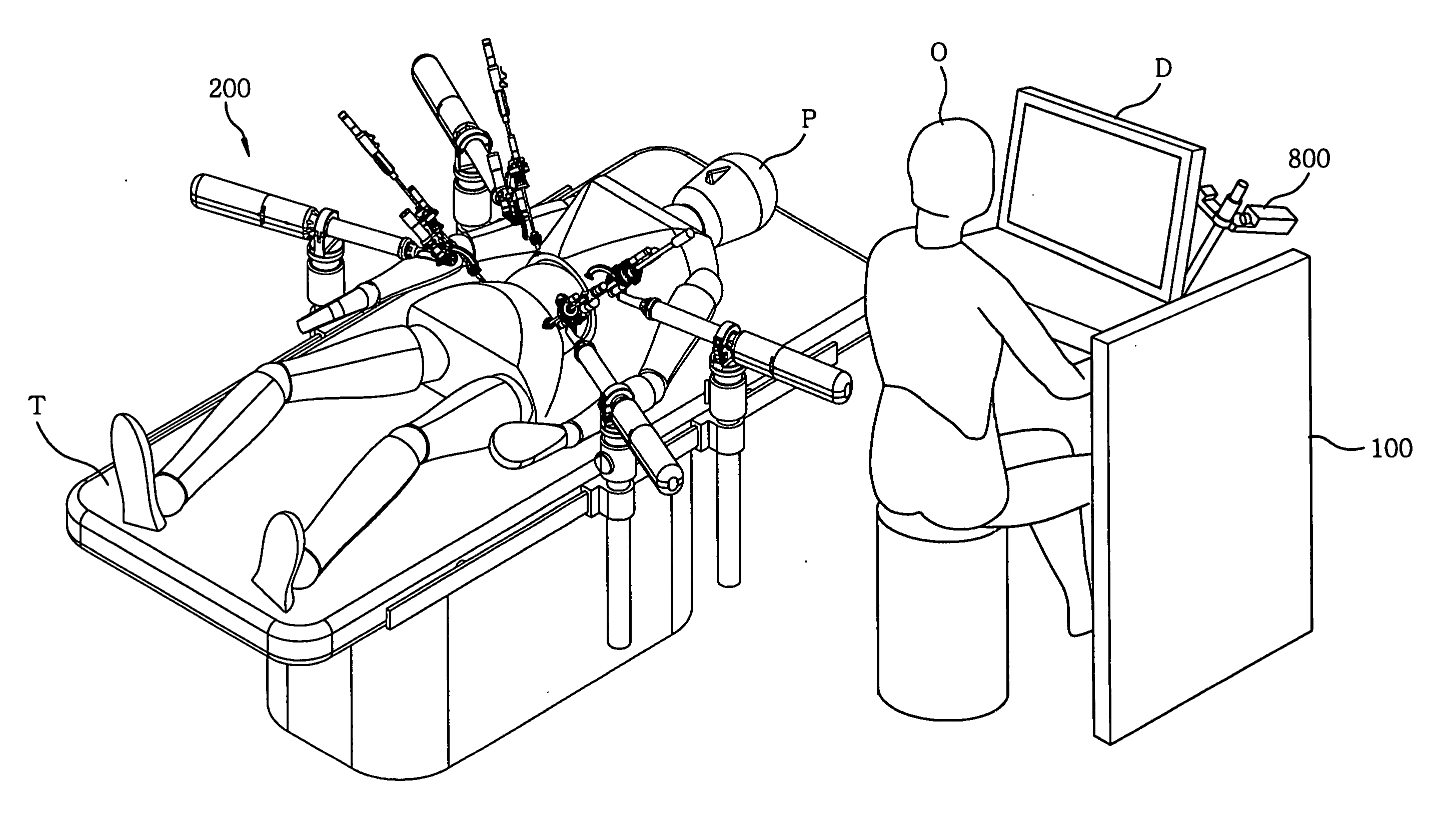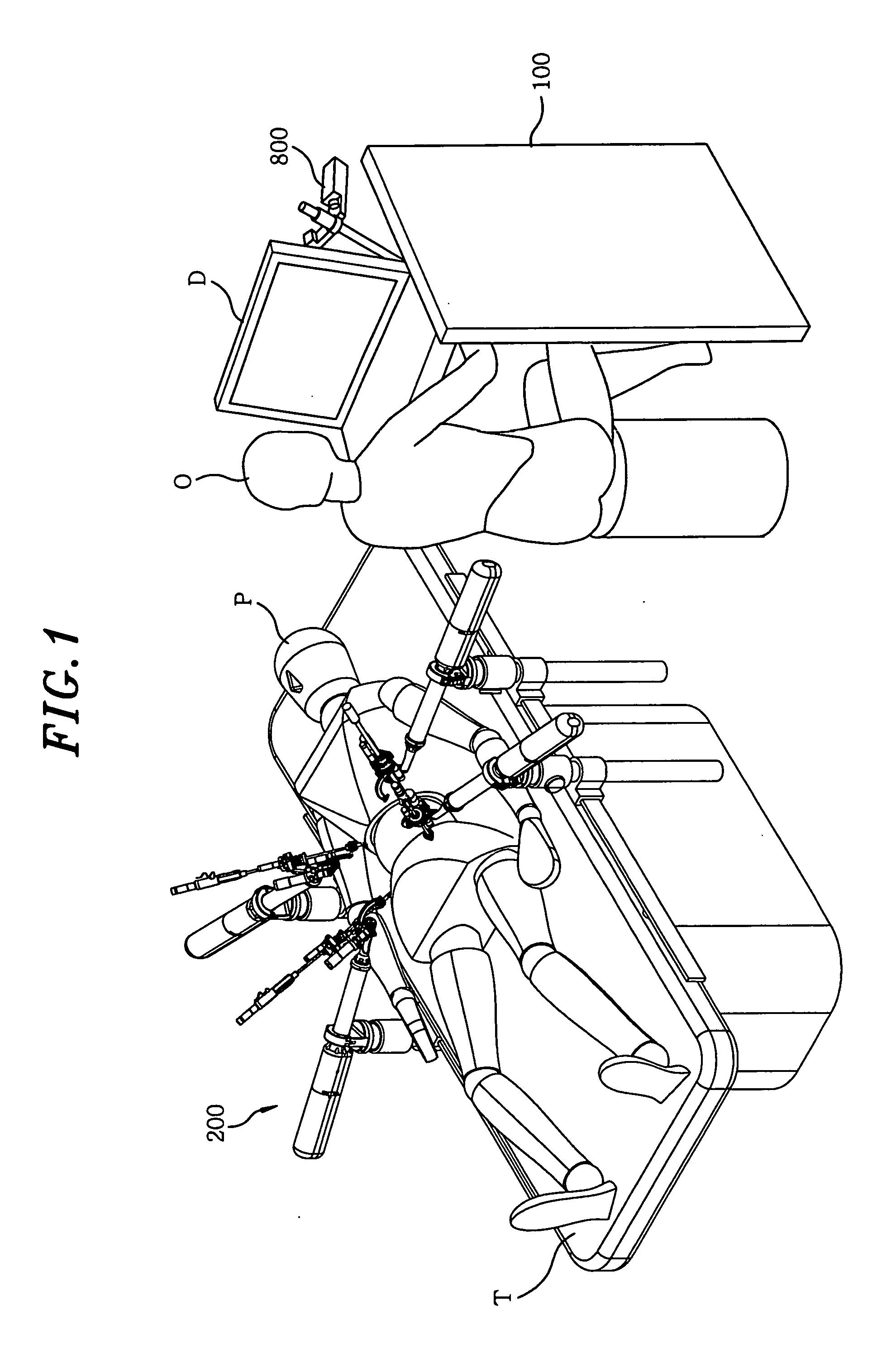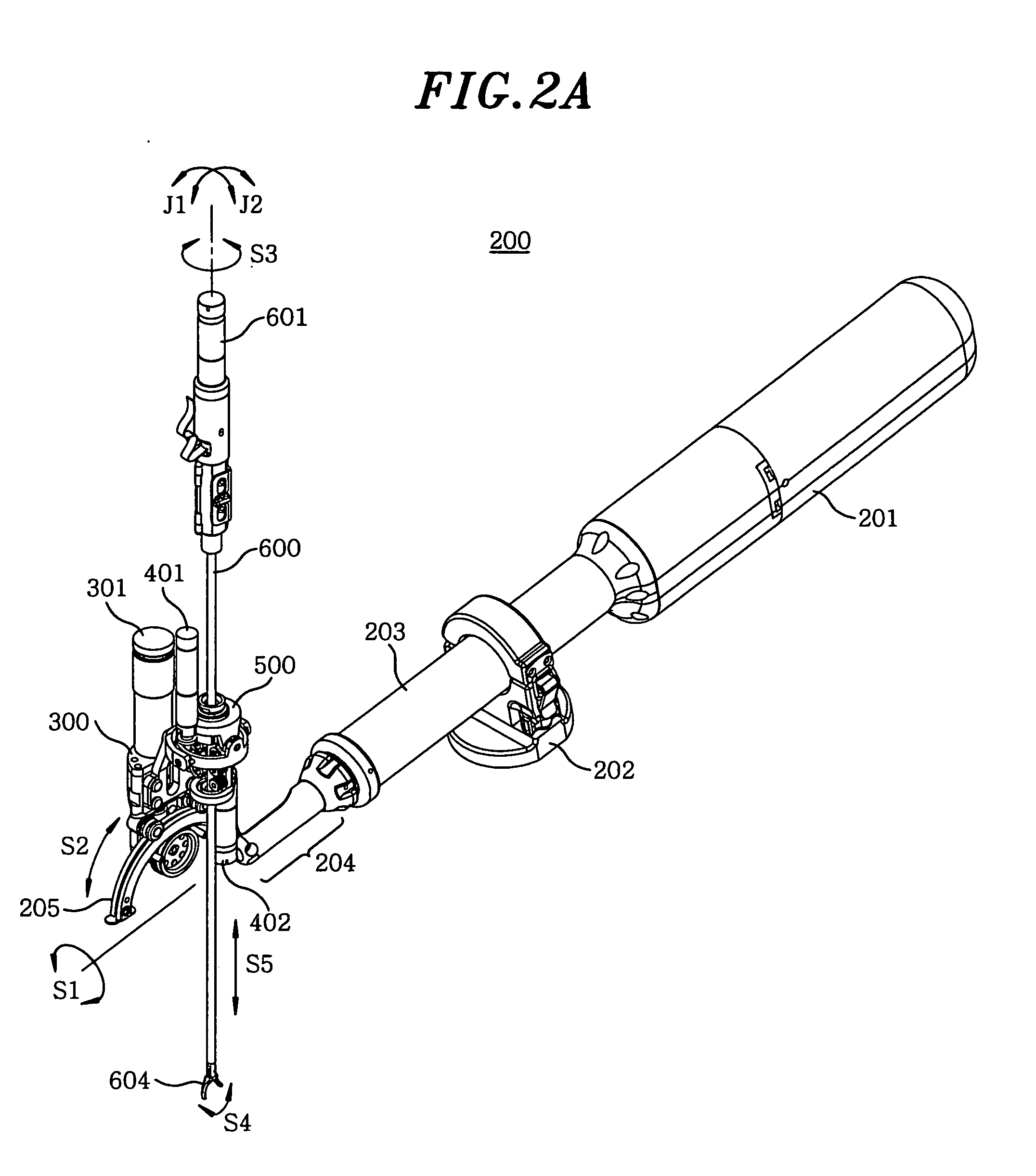Robotic surgical system for laparoscopic surgery
- Summary
- Abstract
- Description
- Claims
- Application Information
AI Technical Summary
Benefits of technology
Problems solved by technology
Method used
Image
Examples
Embodiment Construction
[0026]Hereinafter, a robotic surgical system in accordance with a preferred embodiment of the present invention will be described in detail with reference to the accompanying drawings.
[0027]Referring to FIG. 1, the robotic surgical system includes a plurality of slave robotic units 200 for performing a surgery on a patient P lying on an operation table T; and master manipulators 800, which are installed in a control station 100, for allowing an operator O to remotely control the slave robotic units 200. The control station 100 includes a control system (not shown) for converting movements of the master manipulator 800 into electrical signals; and a display D for allowing the operator O to see surgical procedures conducted by the slave robotic units 200. At least one of the slave robotic units 200 has an endoscope (not shown) for allowing the operator O to view a surgical site through the display D while doing an operation.
[0028]Referring to FIGS. 2A to 2C, the slave robotic unit 200...
PUM
 Login to View More
Login to View More Abstract
Description
Claims
Application Information
 Login to View More
Login to View More - R&D
- Intellectual Property
- Life Sciences
- Materials
- Tech Scout
- Unparalleled Data Quality
- Higher Quality Content
- 60% Fewer Hallucinations
Browse by: Latest US Patents, China's latest patents, Technical Efficacy Thesaurus, Application Domain, Technology Topic, Popular Technical Reports.
© 2025 PatSnap. All rights reserved.Legal|Privacy policy|Modern Slavery Act Transparency Statement|Sitemap|About US| Contact US: help@patsnap.com



